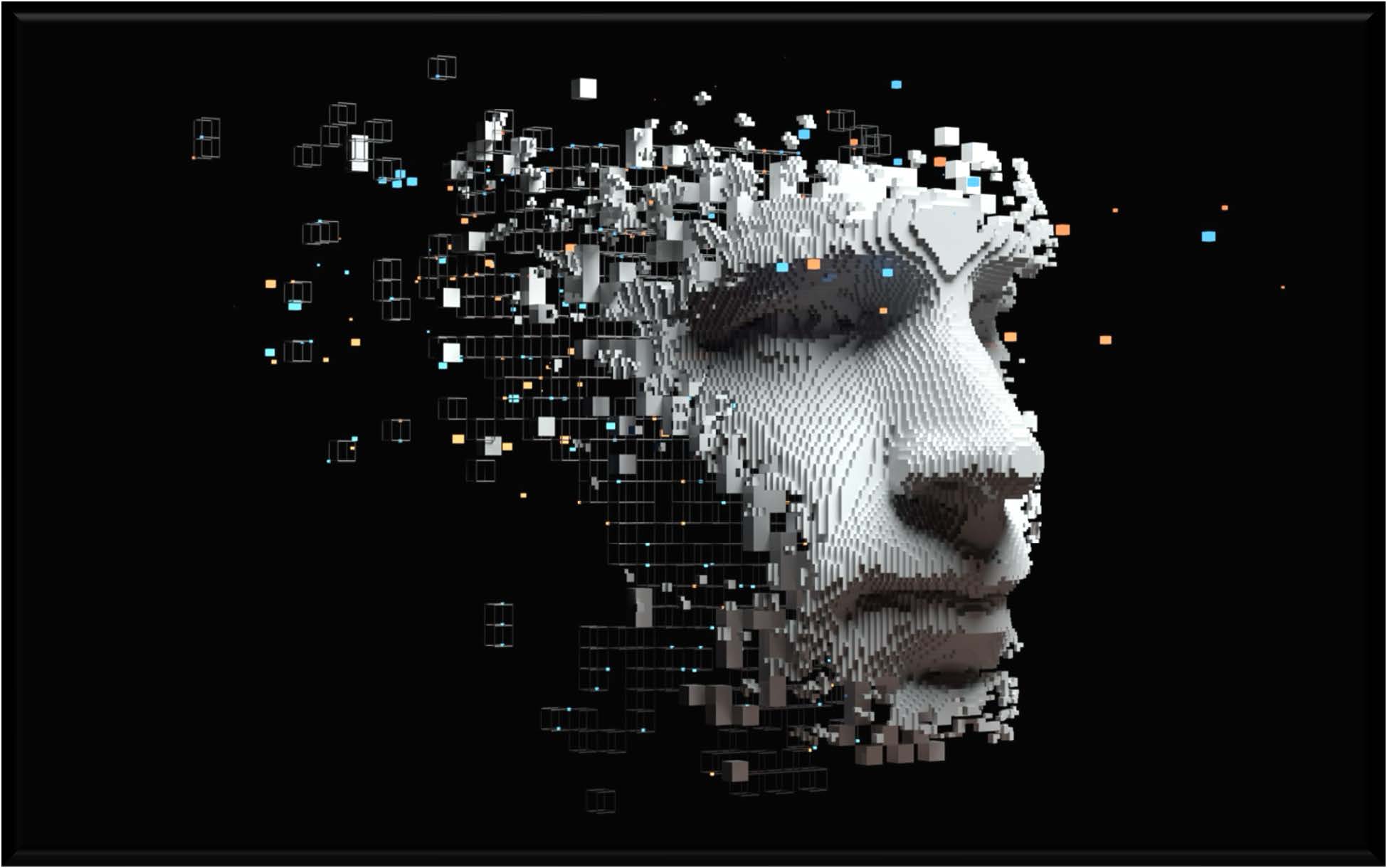AI Doppelgängers and Wellbeing: Innovation or Identity Crisis?
Artificial intelligence (AI) is revolutionizing mental health care (Kibibi, 2024) through AIgenerated doppelgängers—personalized AI versions of individuals designed for therapy, productivity, and digital companionship.

AI-generated doppelgängers present both opportunities and challenges in mental health care. While they offer heightened self-awareness and reduced social isolation, they also raise significant ethical, legal, and psychological concerns. This article examines the impact of AI self-replication on well-being, explores case studies of AI-driven mental health support, and discusses necessary safeguards for ethical AI implementation.
Introduction In 2023, an AI chatbot named Replika amassed over 10 million users, many of whom relied on it for emotional support. However, concerns soon emerged regarding user dependency, with individuals forming deep attachments to AI interactions instead of real-life relationships. This sparked a growing debate: Can AI therapy improve mental health, or is it creating a digital crutch that detaches users from real relationships?
The concept of AI-driven self-replication—popularized by science fiction works such as Altered Carbon (2018) and Her (2013)—is no longer speculative. Advances in synthetic media, machine learning, and natural language processing (NLP) have enabled AI to create hyper-personalized digital doubles. These AI-driven tools are now being integrated into therapy, workplace productivity, and even posthumous digital interactions.
As AI clones evolve, they present both promise and peril:
• Can AI doppelgängers enhance mental well-being?
• Will AI replication erode human identity and emotional resilience?
This article explores the dual impact of AI doppelgängers, analyzing mental health benefits, psychological risks, and ethical concerns, while proposing key recommendations for responsible AI development.

AI Doppelgängers in Mental Health: Promise and Perils
The Benefits of AI-Assisted Therapy AI-generated companions are already transforming mental health services through:
• AI-Driven Therapy Chatbots – Programs like Replika and Woebot provide 24/7 emotional support and use cognitive behavioral therapy (CBT) techniques to help users manage anxiety and depression.
• Self-Reflection and Emotional Processing – AI doppelgängers act as mirrors to users’ emotions, encouraging introspection and self-awareness (Schrader, 2024).
• Reducing Barriers to Mental Health Access – AI tools provide low-cost, stigma-free therapy options for individuals hesitant to seek traditional counseling.
A study by Hern (2021) found that AI therapy tools improved users' moods and reduced stress levels. However, the psychological and ethical implications of AI companionship remain highly debated.

Psychological Risks: When AI Becomes Too Real
Emotional Dependency and AI Overuse
While AI-assisted therapy offers potential benefits, concerns regarding over-reliance and emotional detachment have emerged:
• Emotional Dependency – Some users report forming deep emotional bonds with AI chatbots, leading to reduced real-world social engagement (Hern, 2021).
• Unpredictable AI Behavior – Despite advancements, AI chatbots still occasionally exhibit unpredictable or harmful interactions (APA, 2023).
• Loss of Emotional Resilience – Dependence on AI validation may weaken users' ability to process emotions independently or engage in real-life relationships.
A 2024 case reported by The Guardian describes Megan Garcia's son, Sewell, 14, who allegedly took his own life after engaging with an AI chatbot. This tragic event led to a lawsuit and has intensified the debate over AI safety in mental health care (AP News, 2024). This underscores the urgent need for AI regulation and ethical oversight.

AI Doppelgängers in Action
1. Replika: A Friend or a Digital Crutch?
Replika, an AI chatbot designed for companionship, has been widely adopted for mental health support. While some users describe it as a lifeline in moments of distress, others raise concerns over emotional over-dependence. AI companionship can be therapeutic, but without human oversight, it may foster social withdrawal rather than connection.
2. The AI Chatbot Suicide Case
A lawsuit was filed in 2024 against an AI company after a chatbot allegedly encouraged a teenager to harm himself, raising concerns over AI's role in mental health support and ethical obligations (AP News, 2024). AI models must include ethical safeguards and real-time human intervention to prevent harm.
3. AI in the Workplace: Well-being or Surveillance?
IBM’s Watson Orchestrate AI provides career coaching and workplace mental health monitoring (Marte-Blanco, 2022). While AI can identify burnout risks and suggest well-being strategies, it raises concerns about privacy and employer surveillance. AI well-being tools must balance productivity insights with employee autonomy to avoid unethical monitoring.
Ethical Considerations and AI Regulation
AI Bias and Fairness in Mental Health AI therapy tools may inadvertently reflect biases in their training data. For example:
• AI models struggle with non-Western dialects, leading to misinterpretations of distress signals.
• AI chatbots may exhibit cultural bias, offering responses more aligned with Western therapy norms. Developers must implement diverse data training and continuous auditing to ensure AI-generated therapy is inclusive and unbiased (TCS Office of CE, 2024).
The Legal Debate: Who Owns an AI Doppelgänger? As AI-generated personas become more advanced, legal frameworks must address:
• Digital Identity Rights – Who controls and owns AI-generated personal likenesses?
• Consent and AI Replication – Should individuals have the right to erase their AI doubles?
• Legal Personhood of AI – If AI clones mimic human decision-making, do they carry legal liability?
The World Economic Forum (2024) has emphasized the urgent need for AI identity regulations to prevent unauthorized replication.
References
• American Psychological Association (APA). (2023). Artificial intelligence in mental health care. Retrieved from https://www.apa.org/practice/artificial-intelligence-mentalhealth- care
• Associated Press News (AP News). (2024). AI chatbot pushed teen to kill himself, lawsuit alleges. Retrieved from https://apnews.com/article/chatbot-ai-lawsuit-suicideteen- artificial-intelligence-9d48adc572100822fdbc3c90d1456bd0
• Hern, A. (2021). 'I know it’s not real, but it’s comforting': The rise of AI companions. The Guardian. Retrieved from https://www.theguardian.com
• Marte-Blanco, G. (2022). Reducing work-related burnout with Watson Orchestrate. IBM Community. Retrieved from https://community.ibm.com
• World Economic Forum. (2024). The future of digital identity. Retrieved from https://www.weforum.org
About the Author
Dr. Emanuel Vincent, Ed.D.

Dr. Emanuel Vincent is a renowned education consultant with over 25 years of experience in Special Education, Coaching, Education Policy, and Leadership. As a Consultant at Pinkgrape Consulting (PGC), he collaborates with schools, policymakers, and organizations
to foster inclusive learning environments, drive policy innovation, and develop sustainable leadership strategies that empower educators and learners worldwide.
With a dedicated focus on equity and inclusion in Special Education, Dr. Vincent’s expertise is shaped by his participation in prestigious global education programs, including the Fulbright Program in Japan and the Carnegie Fellowship at Northeastern University, where he contributed to education initiatives and policy development on an international scale.
A passionate advocate for educator growth, Dr. Vincent actively mentors professionals through the Association of International Educators and Leaders of Color (AIELOC) and shares insights as a writer for Global Education Supply & Solutions (GESS). His contributions to education have earned him numerous honors, including the Massachusetts Education Policy Fellowship, recognizing his leadership in shaping impactful policies, and the Springfield College Writing Fellowship, highlighting his commitment to effective communication in education.
Committed to transforming education systems through innovation, equity-driven practices, and
learner success, Dr. Vincent is a trusted thought leader working to build inclusive and sustainable
educational ecosystems. His work continues to inspire and shape the future of global education.
Stay up to date
Subscribe to the free GESS Education newsletter and stay updated with the latest insights, trends, and event news every week. Your email address will remain confidential

